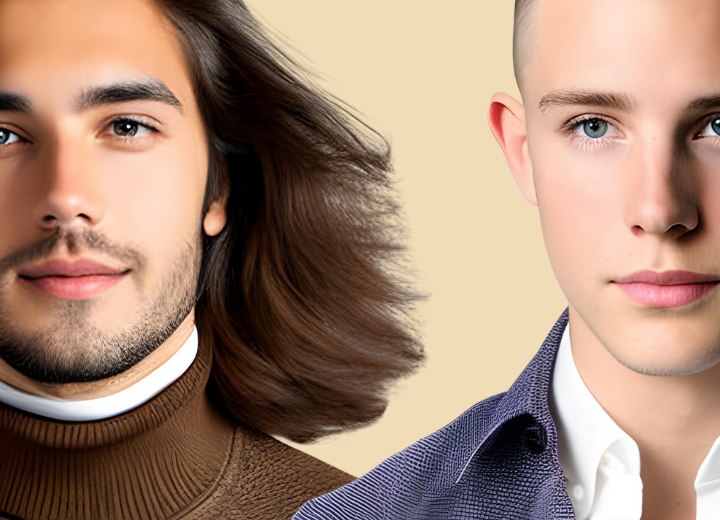Hair Length and Gender

Every era and culture exhibits its own flavor of clothing and hairstyles. These reflect much about a society. In our age, hair has become more and more of an expression of self rather than adhering to the unwritten rules of class, profession, and even gender as it was in the past. After the birth of the short bob in the 1920s, short hair for women became a sign of liberation and slowly entered the mainstream.
There are many studies that try to analyze what attracts us to the other gender. The majority of men say that they prefer long hair on women. Depending on the study, a whopping 60 to 70 percent of men say that they are attracted by long hair. At the same time, most women prefer their guy to be clean-cut and proper, and the numbers are opposite. To understand how these specific tastes came about, a look into history and the story of long hair may shed some light. All of this cannot be separated from the history of the military.
In the Roman army, men were supposed to wear their hair at a length between about one and two inches. Reasons for this were mostly practical, relating to hygiene, wearing helmets, and not offering the opponent a nything to grab onto during combat. The long-haired warriors still existed in other cultures, but it was the first regulation cut introduced by Roman barbers around 300 B.C. that left its mark and continued throughout the times of the empire. Over time, there have been ups and downs in hair length for military men, and especially after WWI, it has become an unshakeable standard for soldiers to have short hair.

Long hair for men has become more and more socially acceptable, but the old stigma is still attached to it. Men with long hair have difficulty finding respect in the professional world or even finding employment. Charles M., a respected news anchor from a local television station in the Midwest, had his own challenges with it. While watching him present the daily morning news to the public, no one had any idea that the well-shaven and short-haired front did not show a long ponytail in the back, which he diligently rolled up into a small and well-hidden bun in his nape. Once the camera was turned off, the hair fell back down. With his little trick, he is a great example that the length of hair and professional skills and performance have absolutely no connection, but that the rules of society dictate a look, whether it makes sense or not.
The infamous mullet is not necessarily the most attractive hairstyle, but it works for many as a way to walk between the lines. A short front and long back attempt to pace the inner yearning for self-expression and at the same time show some acceptance of the rather limiting and uniform norm.
As it has been for centuries, long hair for men is still attributed to artists, poets, musicians, spiritual seekers, and revolutionaries. The theory that the more organized and restrictive a society is, the more it demands uniformity and shortness of hair for its men has quite some merit.
Continue reading ...